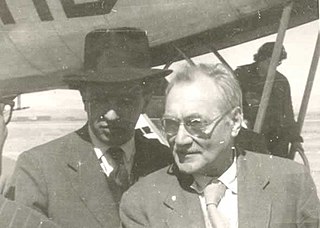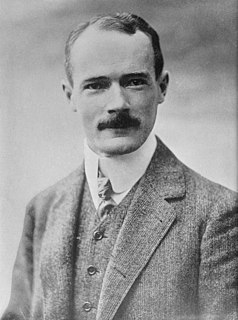A Quote by Rudolf Steiner
Not that which is inspires the creation, but that which may be; not the actual, but the possible.
Related Quotes
This word "description" may be disconcerting when used to refer to what is generally called a translation. But when one wishes to render a verbal creation (as opposed to a didactic statement) from one language to another, he is confronted with two equally unsatisfactory choices. He may, according to his talents, elaborate a similar, but never identical creation, or he may describe that creation as completely as possible in his own language.
To the possible enquiry as to the probable character of a successful flying machine, the writer would answer that in his judgment two types of such machines may eventually be evolved: one, which may be termed the soaring type, and which will carry but a single operator, and another, likely to be developed somewhat later, which may be termed the journeying type, to carry several passengers, and to be provided with a motor.
I am for relying for internal defense on our militia solely till actual invasion, and for such a naval force only as may protect our coasts and harbors from such depredations as we have experienced; and not for a standing army in time of peace which may overawe the public sentiment; nor for a navy which, by its own expenses and the eternal wars in which it will implicate us, will grind us with public burthens and sink us under them.
Every sunset which I witness inspires me with the desire to go to a west as distant and as fair as that into which the Sun goes down. He appears to migrate westward daily and tempt us to follow him. He is the Great Western Pioneer whom the nations follow. We dream all night of those mountain ridges in the horizon, though they may be of vapor only, which were last gilded by his rays.
Correct is to recognize what diseases are and whence they come; which are long and which are short; which are mortal and which are not; which are in the process of changing into others; which are increasing and which are diminishing; which are major and which are minor; to treat the diseases that can be treated, but to recognize the ones that cannot be, and to know why they cannot be; by treating patients with the former, to give them the benefit of treatment as far as it is possible.
It is one thing for the human mind to extract from the phenomena of nature the laws which it has itself put into them; it may be a far harder thing to extract laws over which it has no control. It is even possible that laws which have not their origin in the mind may be irrational, and we can never succeed in formulating them.
For Calvin, the creation reflects its Creator at every point. Image after images flashed in front of our eyes, as Calvin attempts to convey the multiplicity of ways in which the creation witnesses to its Creator: it is like a visible garment, which the invisible God dons in order to make himself known; it is like a book in which the name on the Creator is written as its author; it is like a theater, in which the glory of God is publicly displayed; it is like a mirror, in which the works and wisdom of God are reflected.









































